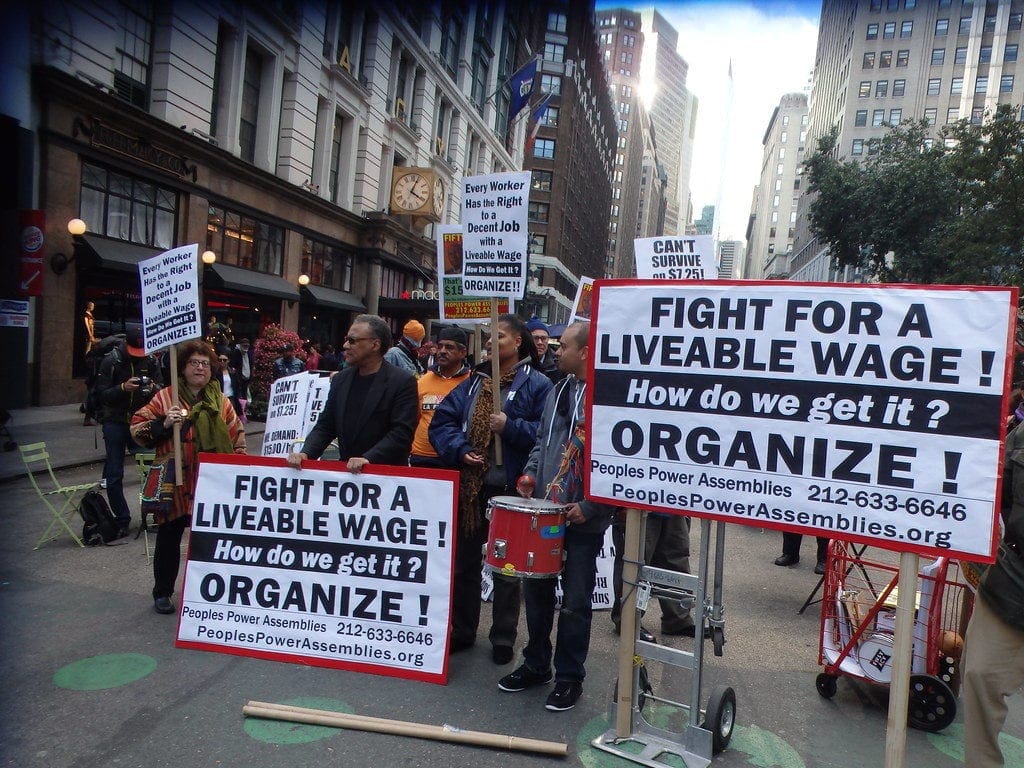On July 19, 2019 the U.S House voted to pass a $15 per hour minimum wage at the federal level. This new policy, if signed into law, would go into effect in 2025. The $15 wage is one of the hottest policy proposals among progressives and is a priority for many 2020 presidential hopefuls in the Democratic Party.
House Speaker Nancy Pelosi said, “this is about workers, it’s about their economic and financial security, and today is a bright day because it affects so many people in our country.”

The Raise the Wage Act was rolled out by Congressman Bobby Scott of Virginia and passed by a 231-199 vote. The bill enacts a gradual increase in the federal minimum wage from $7.25 to $15 per hour.
The federal minimum wage has not witnessed an increase since 2009.
A similar minimum wage bill from March was scuttled when lawmakers hailing from rural and Republican-leaning districts had misgivings about the hike policy. They believed it would be too burdensome for certain small businesses, above all, in places where the cost of living is lower than large urban areas.
This latest bill will unlikely pass the Republican-controlled Senate, as GOP leadership views this measure as a job killer that would disproportionately hurt working class families. House Minority Whip Steve Scalise declared that this minimum wage would “eviscerate millions of American jobs” based on a July report from the Congressional Budget Office which found that 3.7 million Americans would be out of work if this measure is enacted.
Scalise said, “there’s more opportunity than we’ve ever seen. There are more job openings than there are people looking for work. And at that time, you would think the Democrats would want to be working with us to build on that economic success, and instead you see Speaker Pelosi bringing this bill to the floor that would eviscerate millions of American jobs.”
Although this bill will meet its death in the Senate, the fact that this idea is gaining traction shows that economic illiteracy abounds. Government cannot legislate higher wages, but it sure can increase unemployment by mandating wages that employers would not be able to provide under normal circumstances.
Most small business cannot handle these kinds of wage hikes, so they’ll either start laying off people or at the very least, reduce employee hours. Bigger corporations can possibly handle these increased costs, but they’ll likely just accelerate their transition towards automation.
There’s no denying the high cost of living and economic prospects in many areas—especially in most of America’s largest urban centers—which make economic life precarious for most Americans. However, the $15 minimum wage is not the way to handle it.
Instead, policymakers would be better served by overhauling our tax system, dismantling the administrative state, and making housing affordable via zoning reform. An increased minimum wage only guarantees increased unemployment. Not exactly a good recipe for low-skilled workers and disadvantaged minorities in urban centers.
Policymakers should think outside of the box for once.

























